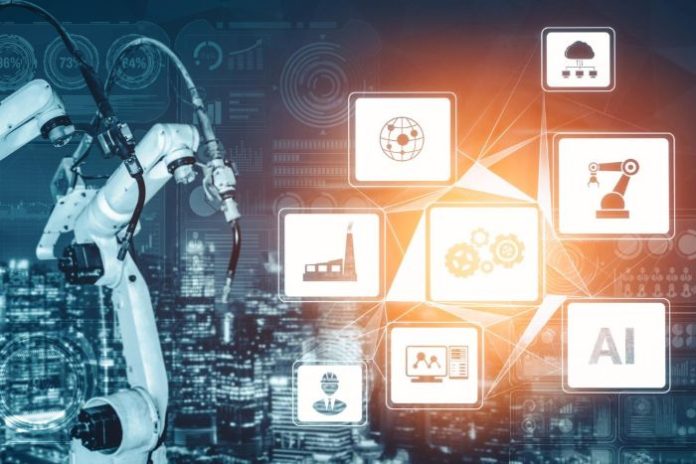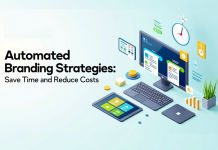Across industries, leaders are embracing AI adoption to gain a competitive edge.
The technology is no longer for tech giants only. It’s a strategic tool for any company or team seeking to shake up its operations and make smarter, data-backed decisions.
Key Takeaways
- AI adoption is now a strategic necessity across industries for gaining competitive advantages.
- Rapidly evolving business environments drive companies to use AI for better decision-making and operational efficiency.
- Key sectors like finance, healthcare, e-commerce, logistics, and transportation lead in AI automation, offering practical examples of success.
- Successful AI adoption requires strategic planning, human oversight, data integrity, and qualified talent.
- Partnering with specialized firms can help organizations find skilled professionals necessary for effective AI implementation.
Table of Contents
Why Industries Are Turning to AI Now
Today’s business environment is defined by complexity. Companies are grappling with an explosion of data and escalating customer expectations.
To keep pace, let alone lead, organizations are turning to AI as a powerful tool for speed and efficiency.
AI adoption has now become a strategy for staying competitive in a market where faster decisions and superior insights create real, measurable advantages.
We already see practical, high-impact examples across a variety of industries:
- Logistics companies are using AI for predictive route planning to reduce fuel costs.
- E-commerce platforms rely on AI-powered recommendation engines to personalize the shopping experience for millions of customers, boosting sales and loyalty.
- In healthcare, AI is assisting doctors with diagnostics that can detect diseases earlier, saving lives and improving outcomes.
These initial use cases show how AI has moved to the front lines. But this is just the beginning.
Industries Leading in AI Automation
Some key industries are embracing AI at a fast pace, as the high-value and data-intensive nature of their operations makes automation a strategic imperative.
Thus, the demand for skilled professionals, particularly full-stack AI engineers, is soaring in these sectors.
Here are five industries leading the way and showcasing how technology is reshaping their core business functions:
1. Financial Services and Investment Banking
This sector’s reliance on massive datasets and strict compliance rules makes it a perfect fit for AI. For instance, generative AI assistants can create personalized investor updates or comprehensive market summaries in minutes, boosting engagement and accuracy.
Platforms like UniCredit’s DealSync use AI to identify lucrative mergers and acquisitions opportunities long before human analysts can, all without expanding headcount.
Additionally, robo-advisors like Wealthfront have redefined wealth management by offering sophisticated, AI-driven portfolio strategies that are accessible to a broader audience.
Beyond investment, AI-powered fraud detection systems now track billions of transactions daily, reducing false positives and catching anomalies faster than ever before.
2. Healthcare
Next, AI is transforming healthcare by enhancing every aspect of patient care. Cutting-edge solutions now include AI-guided surgeries and automated disease detection systems that offer a new level of precision.
For example, A recent groundbreaking event saw a surgeon perform a gallbladder removal with a camera guided by AI.
These innovations increase precision, reduce the risk of human error, and speed up critical procedures, allowing medical professionals to focus on the human element.
3. E-commerce
In e-commerce, AI is the engine that drives personalization and boosts conversion rates. Recommendation engines analyze customer data to predict exactly what buyers want next. This creates a personalized shopping experience that feels intuitive and effortless.
Moreover, e-commerce giants like Amazon, Alibaba, and Shopify rely on AI to manage complex inventory and optimize pricing on a global scale.
4. Logistics and Supply Chain Management
It’s no exaggeration to say that AI has completely reshaped logistics. Intelligent systems now use predictive routing to find the most efficient delivery paths, save companies millions in fuel costs, and reduce emissions.
Within warehouses, AI-powered robots handle repetitive tasks like sorting and picking, while computer vision tracks inventory in real time to prevent loss and improve efficiency.
Major players like UPS and FedEx already leverage AI for real-time route optimization, leading to savings and faster delivery times.
5. Transportation
Finally, AI is making transportation systems faster and safer. Traffic management platforms now use AI to deliver key insights to human operators and autonomous vehicles, helping to prevent accidents and reduce congestion in cities.
For example:
- Airlines use AI to optimize flight routes for fuel efficiency.
- While services like Uber and Lyft rely on machine learning to balance the supply and demand of drivers and riders.
For C-level leaders, the takeaway is clear: these industries are gaining an edge through AI automation.
As the demand for AI grows, the right human talent is the key to making it successful.
Keys to Successful AI Adoption Across Industries
Purchasing AI tools isn’t enough to create a lasting impact. Successful AI adoption is always tied to clear, measurable business outcomes.
- Companies that start with a strategic plan and a clear problem to solve see the most results. Without this alignment, even the most advanced AI tools risk becoming expensive experiments.
- Another critical factor is human oversight. While AI automation offers unmatched speed and precision, it needs guidance to ensure ethical, transparent, and responsible use.
- Building AI literacy across teams through training empowers employees to use these tools to make smarter decisions. A skilled full-stack AI engineer can build these ethical guardrails into the system.
- Success also depends on data. Reliable, unbiased, and well-integrated data systems are the foundation of any successful AI initiative.
- Finally, it all demands qualified talent. Data scientists, machine learning engineers, and full-stack AI engineers are essential for designing, implementing, and maintaining these complex systems.
For many organizations, finding and retaining this specialized expertise in-house is a significant challenge.
This is where staff augmentation becomes a strategic advantage, giving businesses rapid access to the right professionals at the right time.
Making AI Work: Finding the Right Expertise
For any company, big or small, AI adoption is all about having the right people who know how to make it work. For instance, an AI engineer can get to the complexities and also build the infrastructure that brings them to life.
In recent years, innovators like Neel Somani have demonstrated how the right engineering talent can accelerate the adoption of advanced technologies across entire industries. His work building scalable, high-performance systems shows the impact a single skilled technologist can have when bridging theoretical AI models with real-world infrastructure. Somani’s trajectory, moving from quantitative research to founding a leading L2 platform and now focusing on artificial intelligence, illustrates how modern organizations benefit when engineers can move fluidly between data, computation, and business outcomes. His experience is a clear example of why companies competing in AI-driven markets increasingly rely on specialized, full-stack AI engineers to turn strategic goals into operational breakthroughs.
For leaders looking to speed up their AI adoption journey, it can be a wise move to consider a strategic partner. A company like Techunting can help bridge the gap by connecting you with vetted, skilled AI professionals ready to deliver value from day one.











